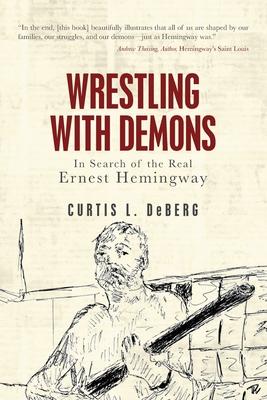What exactly happened the night of July 8, 1918, by the Piave River, on the Italian front, to a young, loud, brash American ambulance driver? This Red Cross volunteer should never have been that close to the Austrian trenches just across the water-within hearing distance.
What if the wound that Ernest Hemingway suffered that night was an entirely different wound from the mortar-blast wound that he allowed biographers to enshrine as the explanation for his life-long trauma? How might this other wound have festered psychologically, decade after decade, under the pressures and distortions of a hypomanic personality?
Join Curtis L. DeBerg in retracing what happened that July night in Italy that saw a young Italian soldier die before Hemingway's eyes - and what happened in the years afterwards, as an unnaturally gifted and sensitive, ferociously combative and disciplined artist wrestled with his inner torments that ended in estrangement from his parents, broken marriages, pain, alcoholism, bitter rivalries, alcoholism and, finally, suicide.
